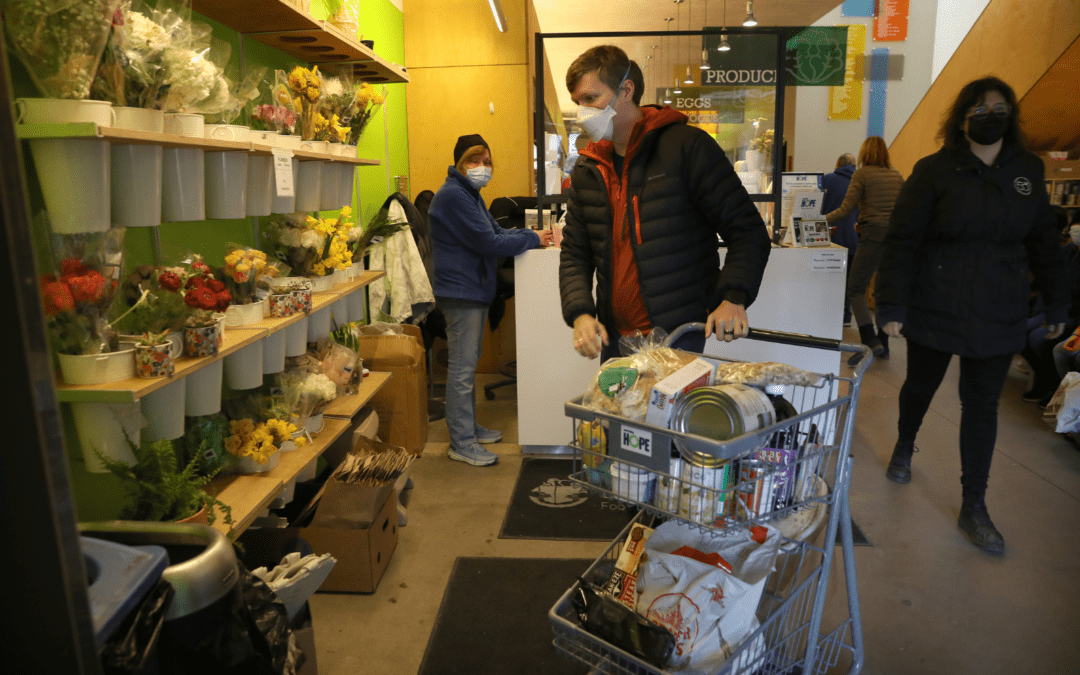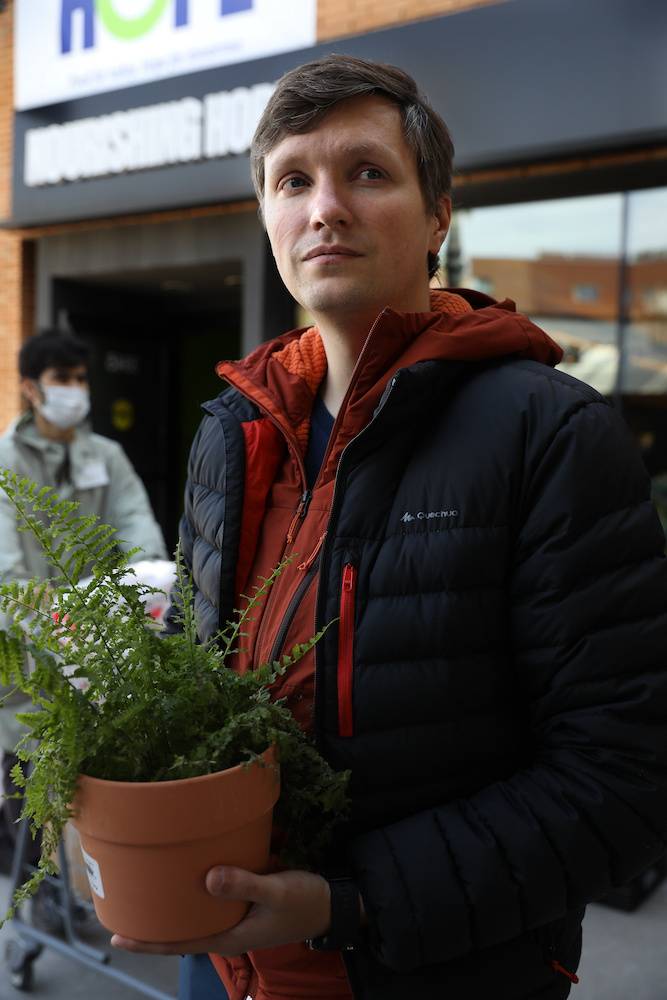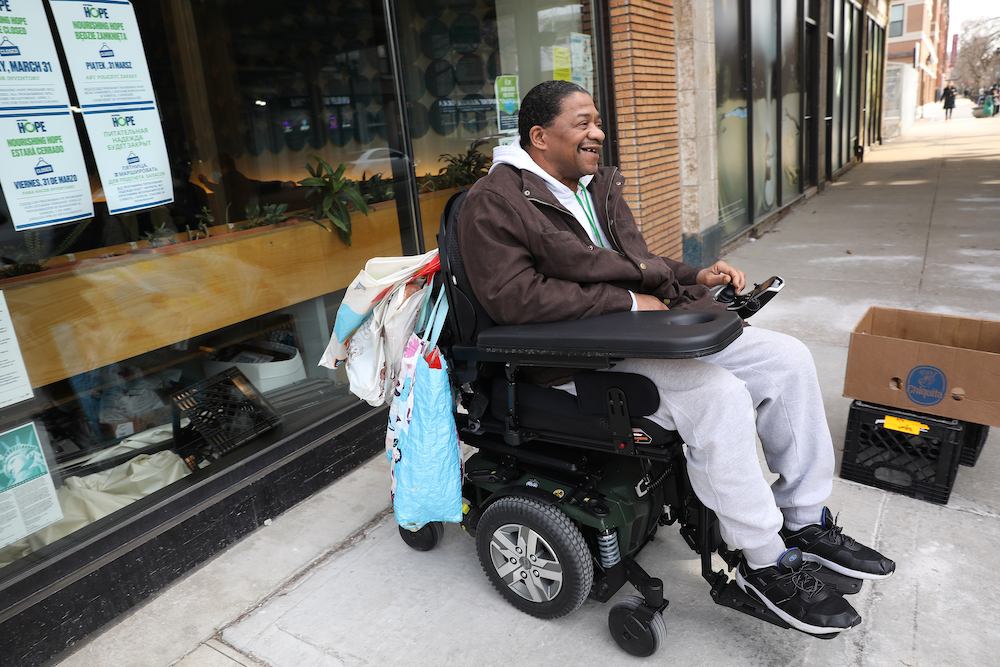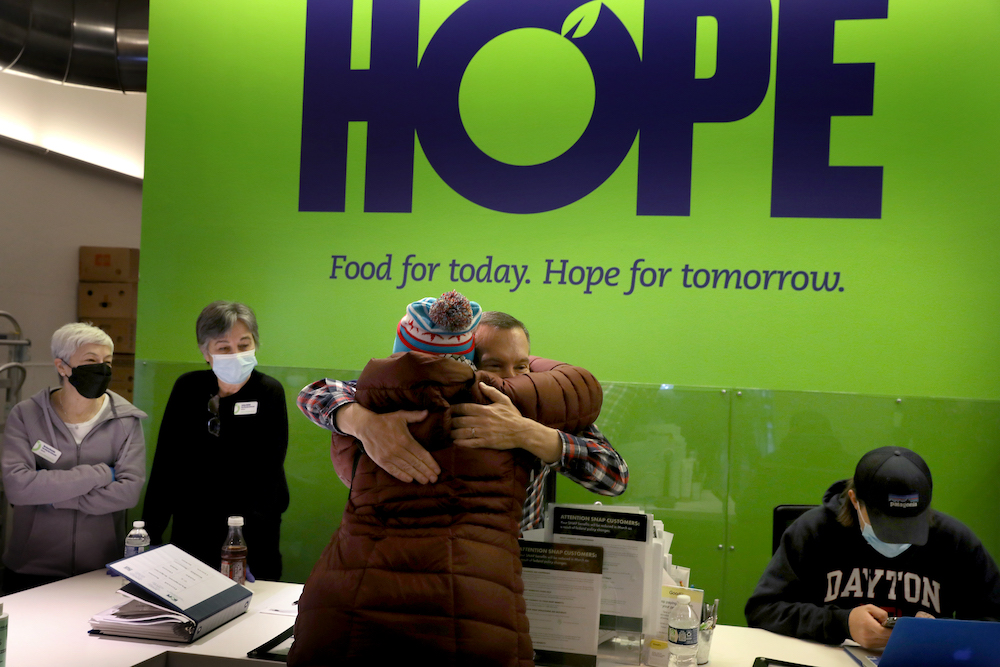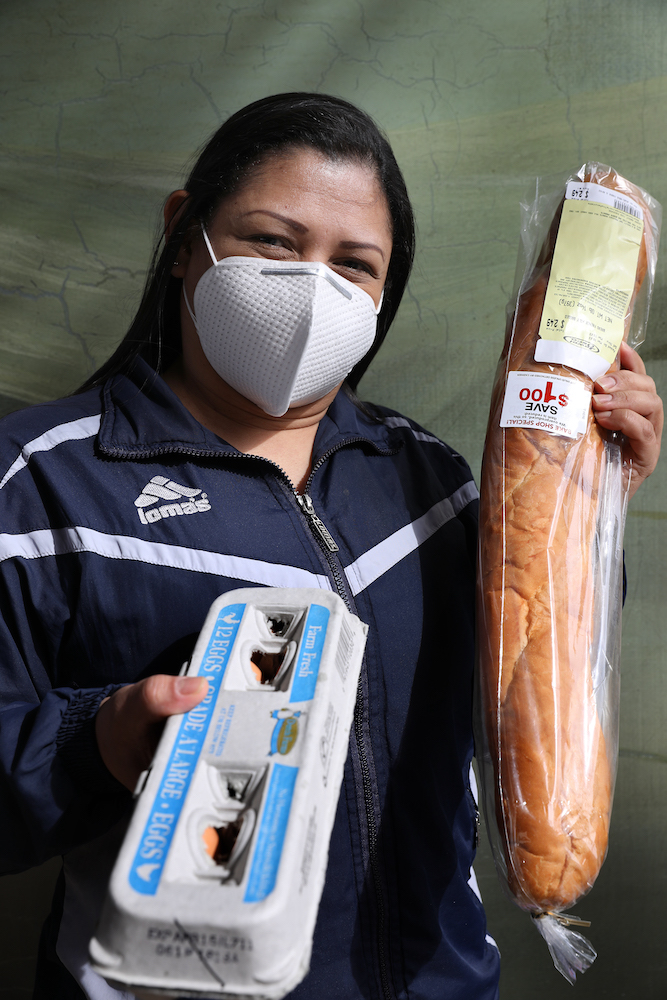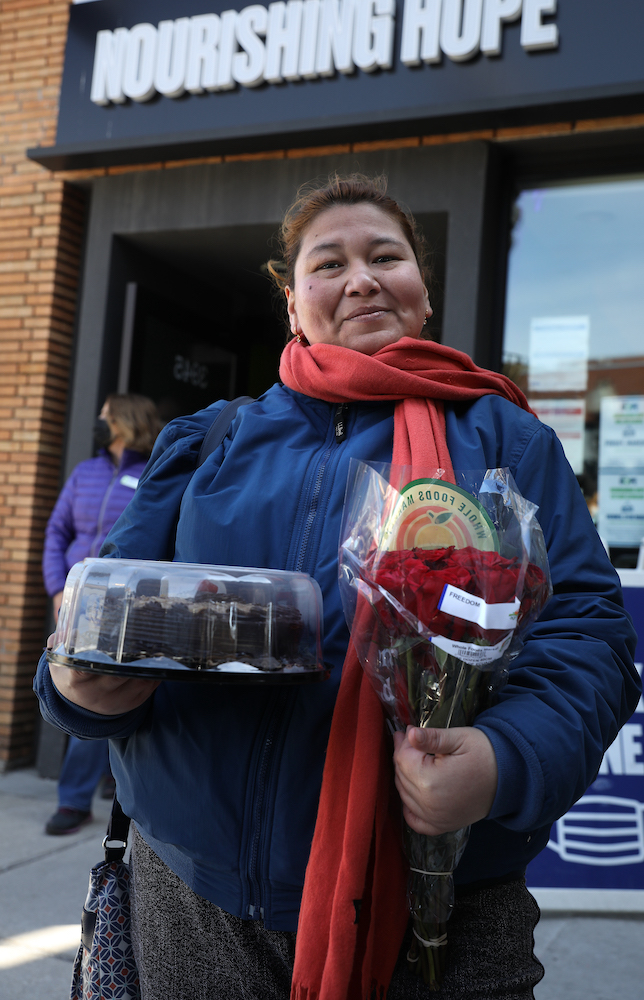(All photos taken by Nancy Stone for Nourishing Hope.)
Anatoliy Plotskiy left his native country of Russia earlier this year because he feared imprisonment under the Putin regime.
Like many other Russians, he is opposed to the ongoing war in Ukraine.
“My political views are not supported in Russia,” said Plotskiy, 31, in a recent interview at Sheridan Market. “If you say something about Putin, you could go to jail.”
Life in Chicago has presented some challenges in the early going. While he has several employable skills as a photographer, welder and bicycle mechanic, Plotskiy has struggled to find work as he waits to receive his social security number. His wife remains in Russia for now to sell their car and apartment, he said, and to tie up other loose ends.
As he waits for his life to stabilize in his new city, Plotskiy has turned to Nourishing Hope’s Sheridan Market for food, such as meat, eggs and pasta.
“It’s a real help because I don’t have much money,” Plotskiy said.
His plight is one example, among countless others, of how national and international events can reverberate in Chicago’s food pantries. Wars cause upheaval for citizens of the countries involved, sending waves of immigrants and refugees to Chicago’s doorstep. International conflicts also rattle global supply chains, driving up prices and compounding hardship for lower-income families here.
Similarly, decisions made in Washington D.C. can quickly multiply the burden of hundreds of thousands of Chicagoans struggling to get by. Take, for example, the recent end of the emergency Supplemental Nutrition Assistance Program (SNAP) benefits, effective March 1, which immediately slashed federal food assistance by an average range of $95 to $255 per month per person.
The combination of national and international factors have fueled a spike in food insecurity in Chicago. In our fiscal year 2023, which ended March 31, visits to Nourishing Hope’s food programs increased by more than 43% from the previous year.
“They have money for war, but they don’t have money for taking care of people,” said Timothy Strickland, 64, of the federal government, as he waited his turn at Sheridan Market.
Six years ago, Strickland was off duty from his job as a prison security guard in South Carolina when he was shot twice, then suffered a stroke, he said. He lost function in the right side of his body.
With his left index finger, he pointed to a small scar in his forehead where he said one of the bullets grazed him.
“I survived it,” Strickland said. “I know God has a purpose for me.”
Strickland has persevered. He’s now taking a criminal justice class at Truman College, he said. He exercises and tries to eat healthy. He hopes to eventually earn a college degree and become a teacher.
But the SNAP cuts hurt.
“You’ll be seeing me quite a bit more,” Strickland said, shaking his head. “Food is going to be an issue now.”
At both Sheridan Market and El Mercadito, Nourishing Hope’s Humboldt Park food pantry, there’s been a notable uptick in the past year in immigrants and refugees, many of them from Central and South American countries experiencing climate-change related poverty and political strife. At Nourishing Hope, we’re proud to serve them.
Emma and Will Hamilton, who are sister and brother, are among the millions of people who have left Venezuela in recent years amid ongoing economic and political crisis. Along with their cousin, they arrived in Chicago only a couple of months ago. They’re currently living with friends while they seek work and permanent housing.
The siblings hope to learn English and build a better life here — but the adjustment to a new country has been difficult.
“In Venezuela I worked as a nurse, but here — no,” said Emma Hamilton, 26. “I have my diploma, but I work as a cleaner or whatever comes.”
“I’m beginning again here in Chicago,” she said.
“Estoy empezando otra vez acá en Chicago.”
Gabriela Santana, a native of Ecuador, shares a rented house in the city with eight other family members, including her husband and three children. It’s tight quarters, but they wouldn’t otherwise be able to afford the house.
Santana isn’t currently working as she cares for her 4-month-old baby. And the recent spike in food prices have taken their toll on the family’s finances.
On a recent afternoon, Santana visited Nourishing Hope’s Sheridan Market for the first time. She gestured toward a carton of eggs that she had just received from the Sheridan Market.
“This is like having gold now,” she said.
Despite her family’s challenges, Gabriela was in an upbeat mood, smiling in the sunshine as she waited for a friend. She held in her arms some fresh red roses and a chocolate cake.
“I feel very glad and grateful because everything is super expensive outside of your services,” she said. “The truth is that I’m very thankful.”
